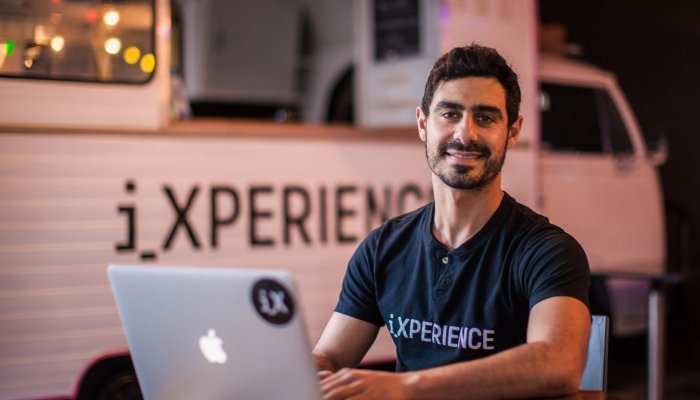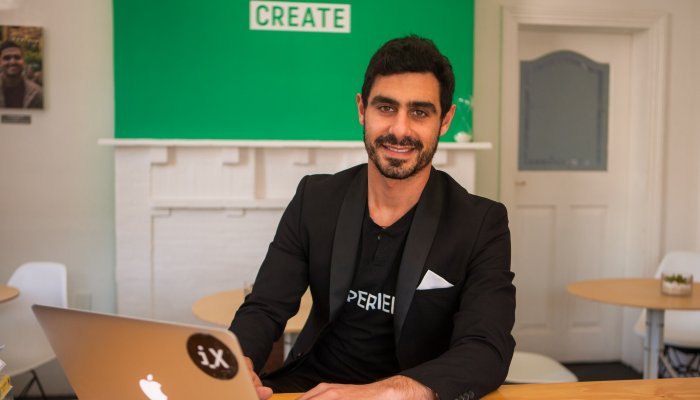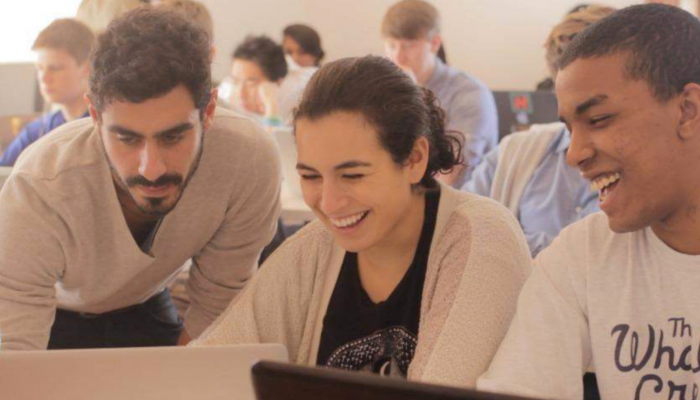A spell in the US and a gap in the market gave Aaron Fuchs the idea for iXperience, an intense and novel form of ‘edu-tourism’, based in Cape Town.
The ability to code is one of the most ‘in demand’ skills in the professional world. But even while institutions like Dev Bootcamp in the US are responding to the need, Code.org states that over one million American computing jobs could go unfulfilled by the year 2021.
“As an employer, I find myself in a position where I struggle to fill vacancies,” says Adi Eyal, Director of Code for South Africa. “At the same time, I receive dozens of inappropriate CVs from eager but inexperienced young people wanting to prove themselves. As a small business, we cannot afford the high cost of on-boarding a junior employee. I need to consider the amount of time needed to train them and the lost productivity of my senior staff. The opportunity cost is massive.”
One person aiming to fill the gap for these skills is Johannesburg-born Aaron Fuchs. He had many interests as a child, from swimming and tennis to cricket and chess. But although the 28-year-old wanted to be a brain surgeon when he was growing up, he matriculated from Parel Vallei in 2006 and went on to study Mechanical Engineering on a full bursary from Yale.
“It was a crazy experience, much like the movies,” he says of his post-graduation job at SAC Capital, a Wall Street hedge fund. “I used to wake up at 5:30, be at the office 6am, and then have summarised all the world news and markets by 10am. For the rest of the day, I would analyse financial data and come up with trade ideas to improve the position of our portfolio. Some of the most challenging areas of the job were learning how to balance risk and still make capital returns.”
Despite being thrown in at the deep end, Fuchs learned plenty about the finance industry and gained a unique set of skills. But after being away from South Africa for six years, he knew it was time to make an important choice.
“I realised that if I didn’t go back to South Africa and give it a chance, I’d end up spending most of my professional life in the US,” he says. “I wanted to find a career where I could excel but also visit my family on the weekends, which was one of the biggest driving forces behind my decision to come back.”
Once home, Fuchs created iXperience, an academy dedicated to teaching people how to code. When he first started the company, one of the many challenges he faced with no track record was getting customers to believe in the offering. Some even accused iXperience of being a scam.
“I went overseas, met with potential clients, and built strong relationships with strategic, trustworthy people in the US,” he says. “This helped us build our credibility over time. Now that we have completed two successful years, we don’t have those issues anymore.”
Rather than expect students to sit back and listen to a passive lecture, iXperience’s methodology places strong emphasis on “pair programming and lots of collaboration”. The first four weeks of coursework involve intensive workshops where students learn how to code. After this, they spend another four weeks in a practical internship to apply their skills on real world tech projects with local tech companies.
“There are currently no schools in the world where the students live together and study intensively for up to 12 hours a day and, by the end of a month, have all the skills needed to build their own web applications from scratch,” Fuchs says. “We even had one student who went back to college and built an online food ordering system.”
Fuchs mentions that other alumni have landed internships at companies including Microsoft and Facebook. Similarly, students in the academy’s two other courses have gone on to work at companies including Accenture, Deloitte, Ernst & Young, and Pick ‘n Pay (for those doing iX Consulting) as well as Allan Gray, FNB, Investec, and Nedbank (for those doing iX Finance).
“Eighty-percent of our daily activities happen on a digital device,” Fuchs says. “This demand is continually growing and therefore knowing how to code will give you great career options.”
But although the coursework is demanding, Fuchs still encourages students to make the most of their free time. Not only does the ‘ixHQ’ have Silicon Valley-esque breakout rooms and study spaces – beanbags, couches, and desks by the fireplace – but the coffee bar opposite the conference room and mountain bikes hanging from the walls give it the feeling of a college dorm room.
True to the idea of working hard and playing harder, students are free to “take breaks for surfing, yoga or even a nap”. iXperience also encourages them to experience the “natural beauty, incredible food, and unparalleled opportunities for adventure” of Cape Town, the number one city to visit in 2014 according to The New York Times.
“Our students spend a fair amount of capital on tourism activities in South Africa and therefore we are bringing in a decent amount of tourism business into Cape Town,” says Fuchs, who agrees that iXpeirence is indeed an ‘edu-tourism’ provider.
In terms of demographics, iXperience strives to have an equal split between males and females (aged between 19 and 22), all of whom stay at Cape Town Backpackers. The school then organises four weekend excursions for the youngsters, after which they are free to plan independent trips and experiences with their friends.
But it’s not all fun and (computer) games. iXperience also encourages students to think about the benefits technology can have on society. Two weeks after coursework begins, students pitch an idea for their own app. Classmates then rally around the most interesting ideas and, independently or in groups, develop a fully-functional app to graduate at the end of the course. This gets presented on the evening of the last day of class, with the audience including locals from various Cape Town start-ups.
“To be honest, there is not too much I would do differently,” Fuchs says of the set-up. “I think we got lucky the first time, and it seems that the things we did all seem to have some relevance with regards to adding value to the company.”
Still, while iXperience aims to create apps that address local problems, the courses are currently targeted towards students from the US and UK. Part of this relates to timing, with the curriculum running during the northern hemisphere’s summer break. And part of it relates to competition, with class sizes kept at around 25 students and only 110 spots awarded from over 800 applications this year.
But the biggest barrier is the cost. Spending US$8000 for an eight-week course might be reasonable for US and UK students (especially given that it includes tuition, accommodation, planned weekend activities, and breakfast every day), but might be beyond a South African’s Rand-bound reach.
For this reason, iXperience has partnered with Platform45, a company awarding scholarships to students who come up with innovative apps to solve social issues in Africa. It’s also why Fuchs’ plans for the future include adding new courses – Value Investing, Management Consulting, UX, and Design – and expanding the program into other countries around the world.
“We are working on having local corporates sponsor talented students to do our courses,” he says, adding that Allan Gray sponsored two students to do the program this year. “We also hand out a few of our own scholarships. It’s our dream to offer our courses to the top students in South Africa at zero cost and give them a world class education that can inspire them to shape the future of our country.”










